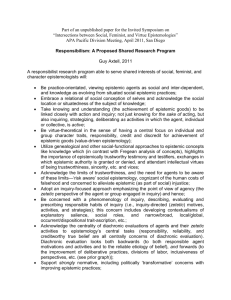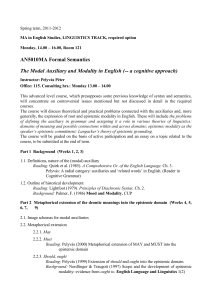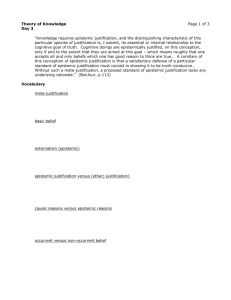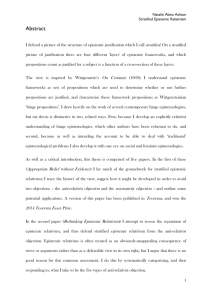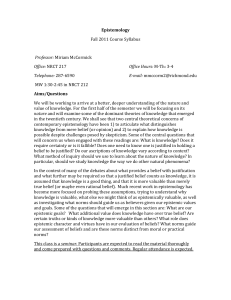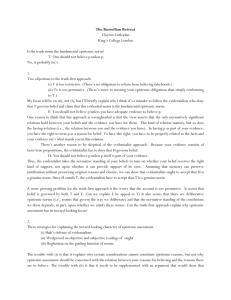David William Shaffer seminar information
advertisement
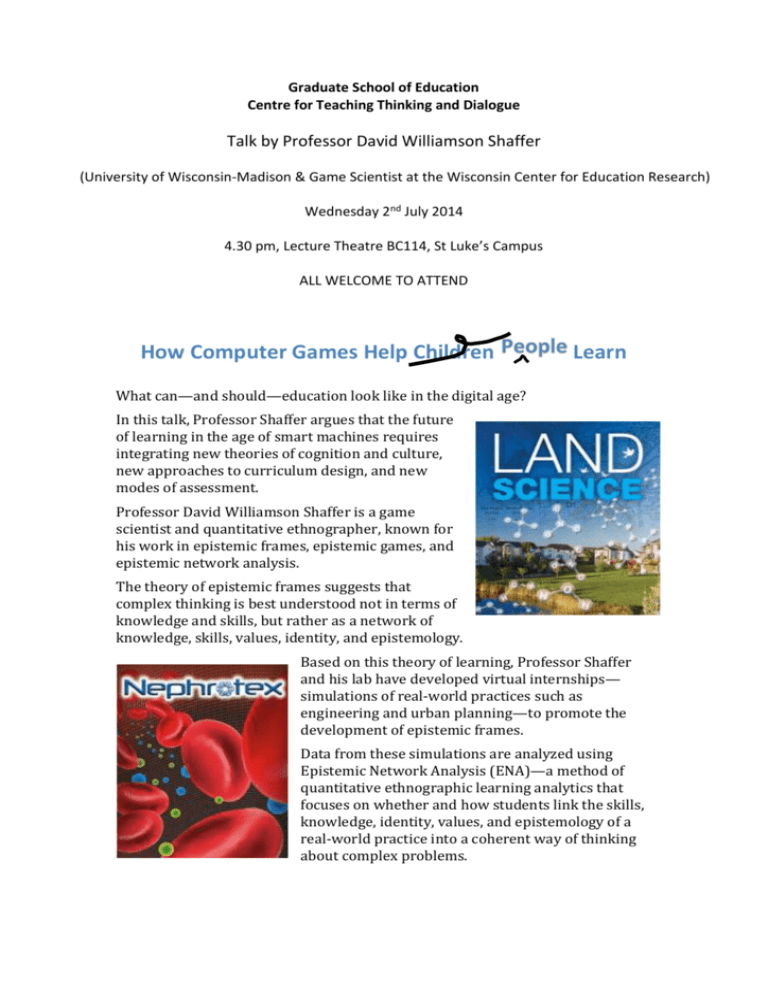
Graduate School of Education Centre for Teaching Thinking and Dialogue Talk by Professor David Williamson Shaffer (University of Wisconsin-Madison & Game Scientist at the Wisconsin Center for Education Research) Wednesday 2nd July 2014 4.30 pm, Lecture Theatre BC114, St Luke’s Campus ALL WELCOME TO ATTEND How Computer Games Help Children Learn What can—and should—education look like in the digital age? In this talk, Professor Shaffer argues that the future of learning in the age of smart machines requires integrating new theories of cognition and culture, new approaches to curriculum design, and new modes of assessment. Professor David Williamson Shaffer is a game scientist and quantitative ethnographer, known for his work in epistemic frames, epistemic games, and epistemic network analysis. The theory of epistemic frames suggests that complex thinking is best understood not in terms of knowledge and skills, but rather as a network of knowledge, skills, values, identity, and epistemology. Based on this theory of learning, Professor Shaffer and his lab have developed virtual internships— simulations of real-world practices such as engineering and urban planning—to promote the development of epistemic frames. Data from these simulations are analyzed using Epistemic Network Analysis (ENA)—a method of quantitative ethnographic learning analytics that focuses on whether and how students link the skills, knowledge, identity, values, and epistemology of a real-world practice into a coherent way of thinking about complex problems. Related Literature Shaffer, K.D. (2006). How computer Games Help Children Learn. Palgrave: Macmillan. Gee, J.P. and D.W. Shaffer.(2010). Looking where the light is bad: Video games and the future of assessment (Epistemic Games Group Working Paper No. 2010-02). Madison: University of Wisconsin-Madison. http://edgaps.org/gaps/looking-where-the-light-is-bad/ Shaffer, D.W. (2010). The Bicycle Helmets of “Amsterdam”: Computer games and the problem of transfer. (Epistemic Games Group Working Paper No. 201001): University of Wisconsin-Madison. http://edgaps.org/gaps/the-bicyclehelmets-of-amsterdam/



